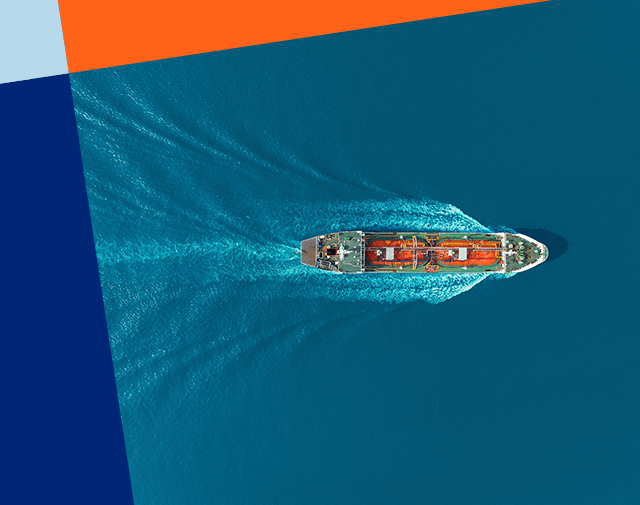Capitalizing on changing market
13 Apr 2012
|
Asia Maritime |
|
|
|
Standfirst: A combination of hard work, a poor shipping market and the apathy of oil majors to their marine customers has enabled Gulf Oil Marine to take an ever-growing slice of the business.
Gulf Oil Marine, a supplier of marine lubes, delivered its first consignment of marine lubes in early 2009. The company has come a long way since then, due in part to the hard times shipowners and managers have suffered over the past three years.
Gulf’s chief executive Keith Mullin says: “Sadly, from our customers’ perspective they are finding these times as tough as any in the last 30 years.
“But for us it has created opportunities as well as challenges. As a relatively new player on the block we are not constrained by the huge bureaucracy that encumber the oil majors,” he says.
“As a result, we can be quick, nimble and flexible. In a tough market we have the opportunity to be more creative and develop solution based operations for our customers,” concludes Mr Mullin.
Jackson Davis, Gulf’s general manager for Asia Pacific adds: “The business plan of this company was written at the height of the boom. And the projections were to just keep going. It caused some sleepless nights amongst our executives and shareholders when that business model became essentially worthless, given the assumptions it was made on.
“But because the downturn forced shipmanagers and owners to work harder to optimize their purchases - lubricants are a huge chunk of the P&L – maybe 20% - To try and get an additional 2% to 3% out of that not just by buying at better prices but buying at better ports and at the right times – that was good for us.
“We could offer unique solutions with enhanced customer service and a robust network. That is what managers are craving at this time. We have proven ourselves and when the storm lifts I’m sure we shall reap the rewards,” he says.
Both Mr Mullin and Mr Davis agree that the technology behind lubes production is vitally important. But service and logistics are equally as important in a market where 20 different technologies has narrowed to between eight and 10 As a new virtually independent player Gulf has been able to capitalize on the shift in priorities at the oil majors, the company’s most important rivals. This has resulted in much of the competition withdrawing from the market or slowing its investment.
“Marine lubes from a downstream segment and all downstream segments are being squeezed because the upstream offers much greater profits. On the other hand, downstream is all we do,” says Mr Mullin.
“Bunker fuel and lubes account for very little for the majors. As a result the shipping community has suffered due to waning service levels where oil majors have been pulling out of ports, offering longer lead times and shorter amounts of inventory.”
“Some competitors have reduced their coverage from 850 to 300 ports to reduce costs. Two majors have pulled out of the sub-Saharan African market altogether. Some supply capabilities may be left but many downstream operations have been sold off,” says Mr Mullin.
In the face of this diminishing presence Gulf has quickly stepped into the breach. Mr Davis reveals the strategy: “Of the three main shipping segments of tankers containers and bulkers we are heavily into bulkers. The reason is because it is one of the hardest sectors to service given the erratic trade patterns and the relatively small ports they often call at.
“Containers are quite easy and can be predictable down to the hour. Tankers are similar. If you have a network that can adequately handle bulkers you have it for the other two sectors. I believe our network is the most robust out there,” he says.
The level of customer service has also been vital from day one with Gulf insisting that customer service personnel are stationed in the locations where the customers are. “You can only know what the customer needs if you know who the customer is,” says Mr Mullin.
Gulf now supplies 860 ports across the globe and continues to expand coverage in line with changing trading patterns.
While Gulf Oil Marine’s business is purely marine as a part of the larger group of Gulf Oil International Group it can tap into the parent’s network of 60 or 70 countries worldwide.
“We have complete coverage but even with blanket coverage you can still do better. In Singapore the largest hub in the world for fuels and lubes, in the face of stiff competition we differentiate by delivering to vessels sitting outside of Singapore waters. We are the only company doing that and it affords our customers time and cost savings,” says Mr Davis.
While expansion of supply points is in response to demand, sales point expansion has taken on a life of its own. “We have been opening up new markets to sell in to,” says Mr Mullin. In the past 12 months we have opened sales offices in the UK, Greece and Italy.”
|




